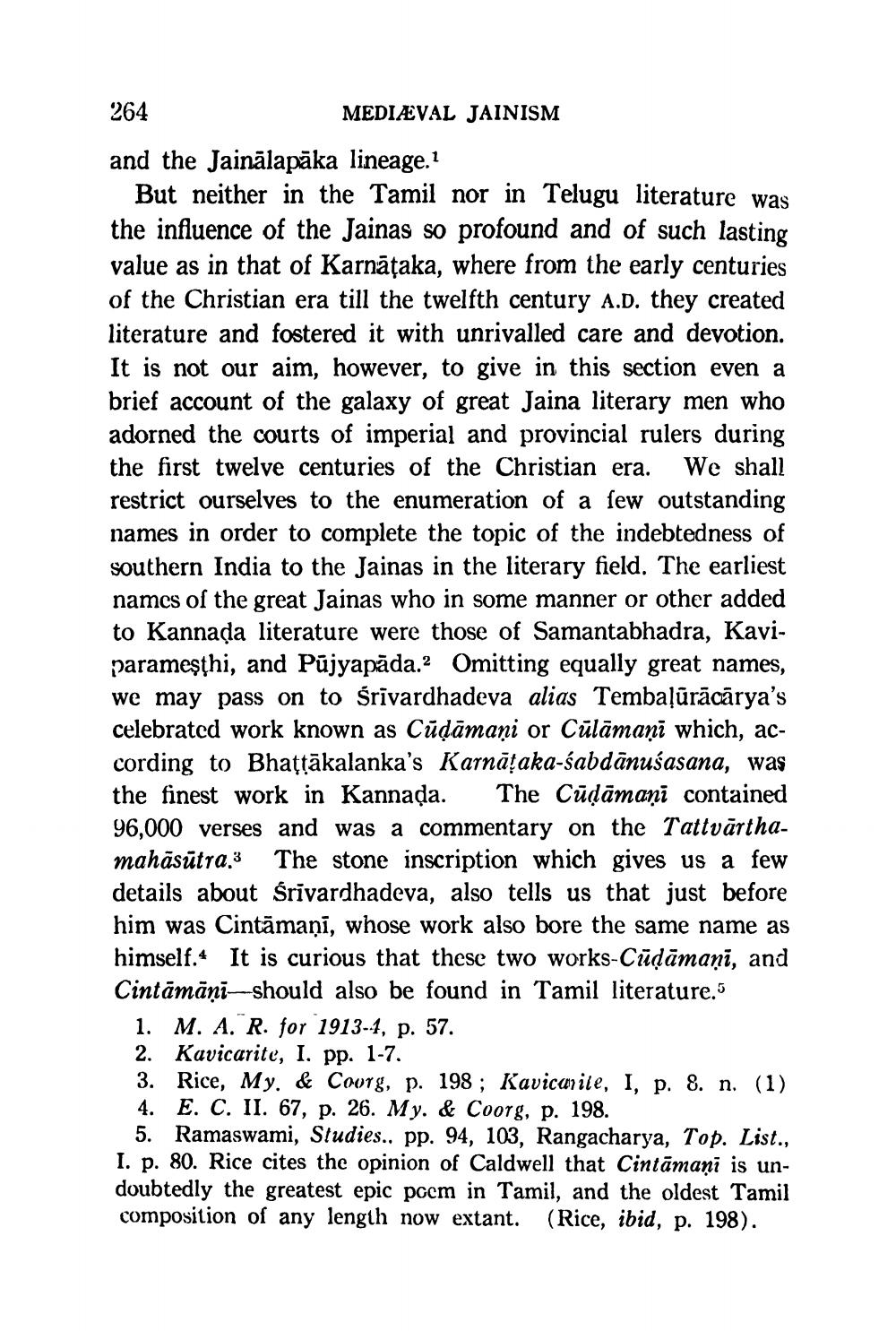________________
264
MEDIÆVAL JAINISM and the Jainālapāka lineage.?
But neither in the Tamil nor in Telugu literature was the influence of the Jainas so profound and of such lasting value as in that of Karnāțaka, where from the early centuries of the Christian era till the twelfth century A.D. they created literature and fostered it with unrivalled care and devotion. It is not our aim, however, to give in this section even a brief account of the galaxy of great Jaina literary men who adorned the courts of imperial and provincial rulers during the first twelve centuries of the Christian era. We shall restrict ourselves to the enumeration of a few outstanding names in order to complete the topic of the indebtedness of southern India to the Jainas in the literary field. The earliest names of the great Jainas who in some manner or other added to Kannada literature were those of Samantabhadra, Kaviparameşthi, and Pūjyapāda. Omitting equally great names, we may pass on to Śrīvardhadeva alias Tembaļūrācārya's celebrated work known as Cūdāmaņi or Cūlāmaņi which, according to Bhattākalanka's Karnāļaka-sabdānuśasana, was the finest work in Kannada. The Cūdāmaņi contained 96,000 verses and was a commentary on the Tattvārthamahāsūtra.3 The stone inscription which gives us a few details about Srivardhadeva, also tells us that just before him was Cintāmaṇī, whose work also bore the same name as himself. It is curious that these two works-Cüļāmaņi, and Cintāmāņā-should also be found in Tamil literature.5
1. M. A. R. for 1913-4, p. 57. 2. Kavicarite, I. pp. 1-7. 3. Rice, My. & Coorg, p. 198 ; Kavicarile, I, p. 8. n. (1) 4. E. C. II. 67, p. 26. My. & Coorg, p. 198. 5. Ramaswami, Studies., pp. 94, 103, Rangacharya, Top. List., I. p. 80. Rice cites the opinion of Caldwell that Cintāmaņi is undoubtedly the greatest epic poem in Tamil, and the oldest Tamil composition of any length now extant. (Rice, ibid, p. 198).




